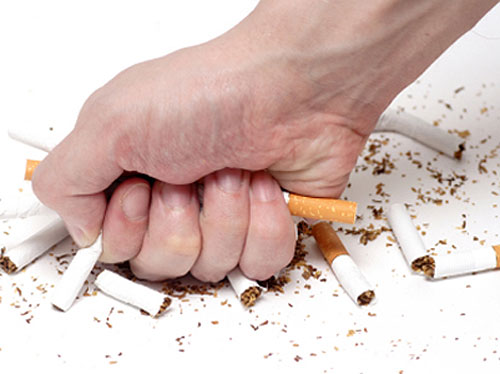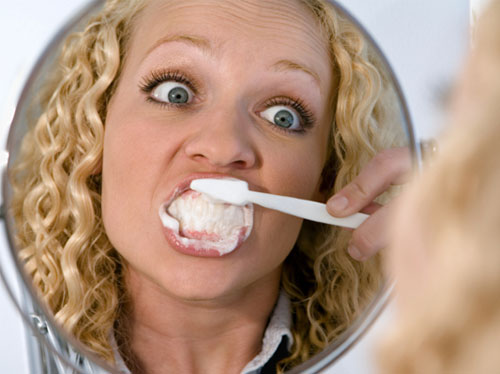If you were raised by a mother and a father who, yes, would argue
about the most pointless things and decide every single detail about
your life until you become an adult and move out, you had the chance to
experience life with a unit of two people who assumed very different
roles: in general, fathers often take on the role of provider, the voice
of authority, the protector against real life dangers and things that
go bump in the night. Mothers, on the other hand, usually tend to be
more tender, sentimental and easygoing. When mothers are absent from the
household, this equilibrium is shot off-balance and fathers find
themselves struggling to juggle all those responsibilities and jobs that
are often quite contradictory.
When you think of a single mom, your mind automatically flashes to the stereotypical image of the harried, noble, attractive mother left to fend off for herself and provide for her children after the father either abandoned the family, died or went to jail. When you think of a single dad, you probably imagine some hung over dude pouring expired milk into his poorly-dressed son’s cereal before dropping him off late to school. Think again.
There are many types of single fathers: Non-Custodial Single Fathers, Joint Custodial Single Fathers, Custodial Single Fathers, Widowed Single Fathers, Adoptive Single Fathers, Remarried Custodial Fathers. Add to that Active Single Fathers, Never-Married Single Fathers, Absent Single Fathers, Long-Distance Single Fathers, and Incarcerated Single Fathers. And while some of these situations may be easier than others, there is no denying that single fathers work harder to provide both material and familial comfort for their children. With days that start at 6:00 to wake the children up and end at 11:00 pm with tucking them in, days filled with long hours of work, caring for sick children, cooking meals, cleaning a house and chasing nightmares away, it’s no wonder single dads often wish there were more hours in a day, just to get things done. When mothers are completely out of the picture, whether it’s by choice (divorced parents or she wants nothing to do with the children) or by fate, single fathers have to develop a slightly split personality in order to be both Mom and Dad to their kids: they have to hug a broken-hearted teenager and learn the intricacies of bra shopping; they try be more lenient with curfews when a young boy takes his girl out for the first time and weigh the pros and cons of waxing legs versus shaving them; they have to listen to endless babbling about how their daughter’s frenemy totally borrowed her earrings and never gave them back and navigate the tricky waters of the dreaded Talk; they have to build up a timid boy’s ego before his first solo violin performance and try to convince their daughters that the tattooed kid with the motorcycle isn’t a proper suitor… All these things that mothers do best, fathers learn to master when push comes to shove, all while juggling their responsibilities as the man of the house.
And if a single father were to fail at his Mom duties, the kids look for the tenderness and affection they crave somewhere else, somewhere possibly shady or risky. Children also tend to blame their fathers for everything, from their mom’s absence to poor cooking skills, from economic trouble to bad grades. There is not a minute that goes by without them worrying about every aspect of their children’s lives and it is common for single fathers to feel utterly helpless as their kids go from children to teens and eventually adults. When a man has charge of his kids fulltime, he dedicates his life, his time, his money and his energy to them, to raising them and making sure they become respectable and respectful individuals. When he finds a free minute and meets someone new, an even bigger hurdle appears: how to make the kids accept this new woman. If the kids don’t like her, Papa won’t keep her and will have to bear it in silence because kids come first. His feelings, his needs and his desires come second and although some people would boast that they would never let their kids dictate their lives, fathers usually bow down to their children’s will in this regard.
When you think of a single mom, your mind automatically flashes to the stereotypical image of the harried, noble, attractive mother left to fend off for herself and provide for her children after the father either abandoned the family, died or went to jail. When you think of a single dad, you probably imagine some hung over dude pouring expired milk into his poorly-dressed son’s cereal before dropping him off late to school. Think again.
There are many types of single fathers: Non-Custodial Single Fathers, Joint Custodial Single Fathers, Custodial Single Fathers, Widowed Single Fathers, Adoptive Single Fathers, Remarried Custodial Fathers. Add to that Active Single Fathers, Never-Married Single Fathers, Absent Single Fathers, Long-Distance Single Fathers, and Incarcerated Single Fathers. And while some of these situations may be easier than others, there is no denying that single fathers work harder to provide both material and familial comfort for their children. With days that start at 6:00 to wake the children up and end at 11:00 pm with tucking them in, days filled with long hours of work, caring for sick children, cooking meals, cleaning a house and chasing nightmares away, it’s no wonder single dads often wish there were more hours in a day, just to get things done. When mothers are completely out of the picture, whether it’s by choice (divorced parents or she wants nothing to do with the children) or by fate, single fathers have to develop a slightly split personality in order to be both Mom and Dad to their kids: they have to hug a broken-hearted teenager and learn the intricacies of bra shopping; they try be more lenient with curfews when a young boy takes his girl out for the first time and weigh the pros and cons of waxing legs versus shaving them; they have to listen to endless babbling about how their daughter’s frenemy totally borrowed her earrings and never gave them back and navigate the tricky waters of the dreaded Talk; they have to build up a timid boy’s ego before his first solo violin performance and try to convince their daughters that the tattooed kid with the motorcycle isn’t a proper suitor… All these things that mothers do best, fathers learn to master when push comes to shove, all while juggling their responsibilities as the man of the house.
And if a single father were to fail at his Mom duties, the kids look for the tenderness and affection they crave somewhere else, somewhere possibly shady or risky. Children also tend to blame their fathers for everything, from their mom’s absence to poor cooking skills, from economic trouble to bad grades. There is not a minute that goes by without them worrying about every aspect of their children’s lives and it is common for single fathers to feel utterly helpless as their kids go from children to teens and eventually adults. When a man has charge of his kids fulltime, he dedicates his life, his time, his money and his energy to them, to raising them and making sure they become respectable and respectful individuals. When he finds a free minute and meets someone new, an even bigger hurdle appears: how to make the kids accept this new woman. If the kids don’t like her, Papa won’t keep her and will have to bear it in silence because kids come first. His feelings, his needs and his desires come second and although some people would boast that they would never let their kids dictate their lives, fathers usually bow down to their children’s will in this regard.




































